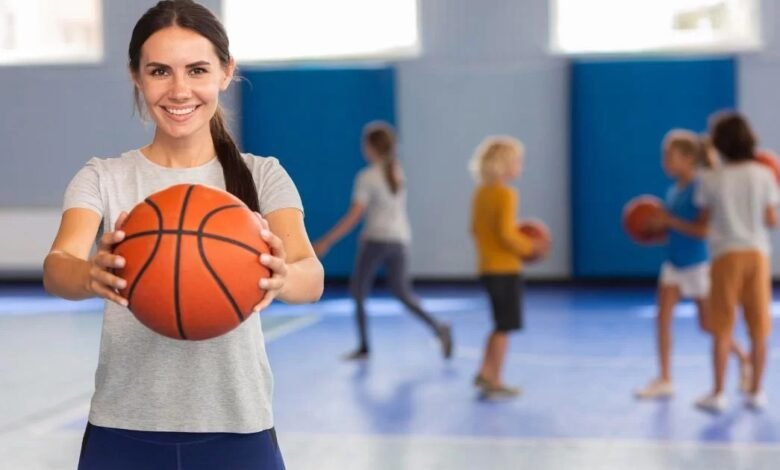The Role of Physical Fitness in Academic Success
Physical Fitness in Academic Success highlights the profound connection between physical activity, mental clarity, & performance in students.

The impact of physical fitness in academic success is profound and multifaceted, influencing cognitive function, focus, and overall student well-being. Academic achievement is not solely dependent on study habits and intellectual capabilities; it is also deeply intertwined with a student’s physical health. Research consistently demonstrates that students who engage in regular physical activity often perform better academically, showcasing improved memory, concentration, and problem-solving skills.
Physical fitness in academic success goes beyond the classroom, fostering discipline, stress management, and a balanced lifestyle. Schools, educators, and parents increasingly recognize the importance of integrating fitness into daily routines to enhance educational outcomes. This article explores the intricate connection between physical health and academic performance, shedding light on the ways fitness contributes to a student’s scholastic excellence.
Read More: The Role of Physical Fitness in Academic Success
The Connection Between Physical Fitness and Cognitive Function
Understanding the role of physical fitness in academic success begins with exploring its impact on cognitive function.
Regular physical activity improves blood flow to the brain, promoting the growth of new neural connections. These biological changes enhance memory, focus, and learning capabilities. Activities like jogging or yoga stimulate the release of endorphins, which improve mood and reduce stress—two factors critical for effective learning. Research highlights that students who maintain physical fitness often demonstrate sharper problem-solving skills and increased mental agility.
Integrating fitness into daily routines ensures that students are mentally prepared to absorb new information and tackle academic challenges with confidence and clarity.
The Impact of Exercise on Concentration and Attention Span
Physical fitness in academic success is closely tied to improved concentration and attention span, enabling students to stay focused for longer periods.
Physical activity activates the prefrontal cortex, the part of the brain responsible for attention and decision-making. Students who engage in aerobic exercises, such as swimming or cycling, often find it easier to maintain focus during lectures and while studying. These activities help reduce distractions, ensuring that students stay engaged with their academic tasks.
Regular exercise routines act as a natural stimulant, boosting productivity and helping students manage time effectively, both of which are crucial for academic success.
The Role of Physical Education in Schools
Physical education (PE) programs play a pivotal role in promoting physical fitness in academic success among students.
PE classes not only encourage regular exercise but also teach the importance of teamwork, discipline, and perseverance. Schools that prioritize physical fitness often report higher student engagement and reduced behavioral issues. The structured environment of PE allows students to channel their energy constructively, which can translate into improved focus and academic performance.
By integrating physical fitness into the curriculum, schools create a holistic approach to education, nurturing both the mind and body for optimal student success.
How Fitness Reduces Academic Stress
Physical fitness in academic success extends to stress reduction, a critical factor for maintaining mental health during exam seasons.
Exercise triggers the release of endorphins, which act as natural mood elevators, combating anxiety and depression. Activities like running, stretching, or dancing offer students a healthy outlet for academic pressures, preventing burnout. Engaging in regular physical activity also improves sleep quality, which is essential for emotional resilience and effective stress management.
Incorporating fitness into daily routines creates a balanced lifestyle, enabling students to handle academic challenges with composure and focus.
Improved Sleep Patterns and Academic Performance
A consistent fitness routine positively affects sleep patterns, reinforcing the connection between physical fitness and academic success.
Physical activity helps regulate the body’s internal clock, ensuring better sleep quality and duration. Restorative sleep enhances memory consolidation, allowing students to retain information more effectively. Students who exercise regularly are less likely to experience insomnia or restlessness, leading to sharper focus and improved academic outcomes.
By prioritizing fitness, students create a foundation for consistent energy levels and mental clarity, essential for excelling in their studies.
Fitness as a Tool for Time Management
Time management is a critical skill linked to physical fitness in academic success.
Engaging in regular exercise teaches students discipline and routine, enabling them to allocate time effectively for studies, extracurricular activities, and rest. Fitness schedules encourage consistency, fostering a proactive approach to meeting deadlines and preparing for exams.
By balancing academics with fitness, students learn to manage their responsibilities efficiently, paving the way for success in both their personal and educational pursuits.
Building Confidence Through Physical Fitness
Physical fitness in academic success also contributes to building self-confidence, which plays a significant role in a student’s performance.
Students who engage in physical activities often experience a boost in self-esteem, derived from achieving fitness goals or excelling in sports. This newfound confidence spills over into academics, where students approach challenges with a positive mindset.
By fostering a sense of accomplishment, physical fitness empowers students to take on academic and personal challenges with determination and resilience.
Group Fitness Activities and Social Development
Group fitness activities enhance physical fitness in academic success by fostering social skills and teamwork.
Participating in team sports, fitness classes, or group exercises teaches students the importance of collaboration, communication, and mutual respect. These social interactions boost morale and create a supportive network that motivates students to excel academically.
Strong social bonds formed during physical activities contribute to emotional well-being, creating a well-rounded approach to personal and academic development.
Brain-Boosting Benefits of Cardiovascular Exercise
Cardiovascular exercises like running, cycling, and swimming have profound effects on brain health, supporting physical fitness in academic success.
These activities enhance oxygen flow to the brain, improving cognitive functions such as memory, attention, and problem-solving. Studies show that students who engage in regular cardio routines perform better in tasks requiring critical thinking and creativity.
Cardio exercises are not just physical activities; they are brain-boosting tools that prepare students for academic excellence.
The Long-Term Benefits of Fitness for Academic Success
The benefits of physical fitness in academic success extend far beyond the classroom.
Students who maintain regular exercise routines often develop lifelong habits of discipline, resilience, and focus. These traits contribute to success in higher education and professional careers. Furthermore, a fit body supports a healthy mind, enabling individuals to handle future challenges with ease.
The long-term advantages of fitness underscore its importance in fostering holistic growth and achievement.
Nutrition and Fitness: A Dynamic Duo for Success
Physical fitness in academic success is amplified when paired with proper nutrition.
A balanced diet provides the energy and nutrients needed for both physical activity and cognitive function. Combining exercise with nutritious meals ensures students remain alert and energized, ready to tackle academic challenges.
This synergy between fitness and nutrition creates an optimal environment for academic growth and overall well-being.
The Role of Mind-Body Exercises in Academic Achievement
Mind-body exercises like yoga and tai chi enhance physical fitness in academic success by promoting mental clarity and stress relief.
These activities improve flexibility, focus, and emotional balance, helping students approach their studies with a calm and centered mindset. Incorporating mind-body practices into daily routines fosters a holistic approach to academic success.
Overcoming Challenges Through Fitness
Physical fitness in academic success teaches students resilience, enabling them to overcome academic hurdles with determination.
Exercise challenges students to push their limits, fostering a growth mindset that translates to their studies. By overcoming physical obstacles, students build the mental toughness needed for academic pursuits.
Fitness Programs in Higher Education
Colleges and universities recognize the link between physical fitness in academic success, offering fitness programs to support students.
Campus gyms, sports clubs, and wellness initiatives encourage students to integrate exercise into their routines, enhancing focus, social interaction, and academic performance.
The Science Behind Fitness and Brain Chemistry
Physical fitness in academic success is deeply rooted in brain chemistry, where exercise enhances neurotransmitter production.
Regular physical activity increases dopamine, serotonin, and endorphin levels, creating a positive mental state conducive to learning and retention.
Fitness Apps and Technology in Academic Success
Fitness apps and wearable technology make physical fitness in academic success more accessible and trackable for students.
These tools provide personalized fitness plans, helping students stay consistent and motivated while balancing academics and health.
Peer Influence and Fitness Culture
A strong fitness culture among peers promotes physical fitness in academic success by fostering motivation and accountability.
Encouragement from friends and participation in group activities create a positive environment for both fitness and academic growth.
Parental Support in Fitness and Education
Parental involvement is critical for promoting physical fitness in academic success among younger students.
Encouraging active lifestyles and setting fitness goals as a family strengthens bonds and sets the foundation for lifelong habits of health and achievement.
Addressing Physical Inactivity in Students
Physical inactivity poses a significant barrier to achieving academic success. Schools and families must address this issue by prioritizing physical fitness in students’ daily routines.
Creating opportunities for exercise helps combat inactivity, improving focus, energy, and scholastic performance.
The Global Perspective on Fitness and Education
Worldwide, educators recognize the importance of physical fitness in academic success, integrating it into policies and curriculums.
International programs highlight the universal connection between an active lifestyle and improved educational outcomes, setting a global standard for success.
Read More: The Role of Physical Fitness in Academic Success
Conclusion
Physical fitness in academic success is a powerful, science-backed tool that enhances cognitive abilities, concentration, and resilience. Whether through structured physical education programs or individual fitness routines, staying active boosts students’ mental and physical well-being, equipping them to excel academically.
As students integrate regular exercise into their lives, they unlock their full potential, creating a balance that fosters long-term growth. Physical fitness is not just a supplement to education—it is a cornerstone of academic excellence and personal fulfillment.
FAQs
1. How does physical fitness impact academic success?
Physical fitness enhances cognitive function, concentration, and mental clarity, helping students perform better academically.
2. What are the best exercises for students to boost academic performance?
Cardiovascular exercises like jogging, yoga, and strength training improve brain function and reduce academic stress.
3. Can fitness reduce stress during exams?
Yes, regular exercise reduces cortisol levels, elevates mood, and provides a healthy outlet for managing academic pressures.
4. Why is physical education important in schools?
Physical education promotes fitness, discipline, teamwork, and focus, all of which contribute to improved academic outcomes.
5. How can students balance fitness with studying?
Students can create a structured schedule that incorporates short exercise sessions, fostering both physical and academic productivity.







